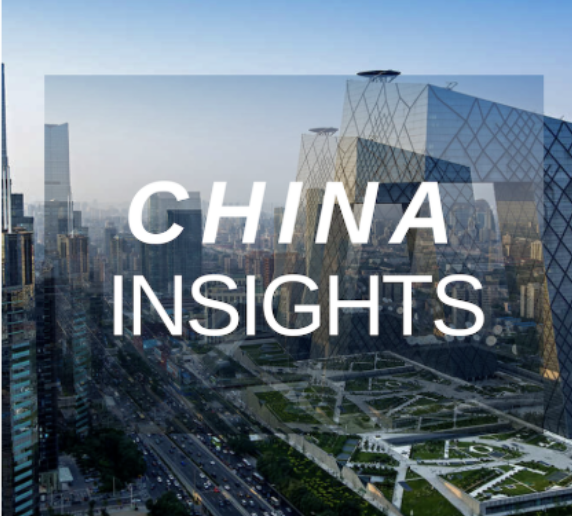Founded in Stockholm, Sweden, in 1970, Kreab is a global strategic communications consultancy with offices in 25 countries, serving over 500 global clients. Kreab advises on communication issues of strategic importance in business, finance, and politics, helping clients solve complex communications challenges and achieve their strategic goals. The Kreab Beijing team is well known for its track record of helping clients manage and strengthen their reputation through services spanning corporate communications, financial communications, public affairs, and social media. Contact Kreab at kchina@kreab.com, follow Kreab on WeChat (ID: KreabChina), or visit Kreab’s website at https://www.kreab.com/beijing.
SwedCham China Insights for the week of November 3 - November 7, 2025

Weekly China Insight
Beijing, 7 November 2025
China and EU hold upgraded export control talks amid rare earth tensions
On 31 October and 1 November, senior trade officials from China and the European Union met over an “upgraded version” of the China-EU Export Control Dialogue in Brussels. The meeting, led by Jiang Qianliang of the Chinese commerce ministry (MofCom) and Denis Redonnet of the European Commission, focused on mutual concerns over export controls, especially China's export restrictions on rare earths critical to European industries. While both sides reaffirmed their commitment to stabilizing supply chains, discussions revealed ongoing uncertainty around the scope and future of China’s export rules. Notably, Beijing’s recent one-year suspension of its October rare earth controls was welcomed by the EU, though controls from April remain in place.
While the upgraded dialogue reflected an intent from both sides to de-escalate trade tensions, China’s layered export control regime highlights the EU’s continued vulnerability in critical raw mineral supplies.
Premier underscores China’s unwavering openness at CIIE in Shanghai
At the opening ceremony of the 8th China International Import Expo (CIIE) on 5 November in Shanghai, Premier Li Qiang delivered a keynote speech emphasizing China’s long-term commitment to high-level openness and global cooperation. Framing the CIIE as a vital “estuary” where the world economy meets China’s, Li stated that the event’s record-high participation underscores the vitality of China’s vast market. He argued that amid rising global protectionism and unilateralism, countries must uphold equality, fairness, and cooperative reform of global trade governance. Li also highlighted the outcomes of the recently concluded fourth plenum, stressing the certainty of China’s development and continued openness to the world in an increasingly uncertain global environment.
Li’s remarks position China as a stabilizing force in the global economy, using the CIIE as both a symbol and an instrument for China’s evolving strategy to counter the growing trend of trade fragmentation.
Chinese cities launch innovative marriage registration services and offer marriage consumption vouchers to boost birth rates
In the early days of November, several Chinese local governments announced new initiatives to encourage marriage, including night-time registration services and consumption vouchers for the newlyweds. In Shanghai’s Huangpu District, couples can now receive marriage certificates at night in a trendy entertainment complex from 14 to 22 November, with services including personalized concierge assistance and potential tickets to music events. Other cities, such as Urumqi, Chengdu, Ningbo, and Yixing, have brought marriage registration services to music festivals and sporting events, creating a fusion of marriage with local cultural tourism. Meanwhile, Ningbo, Hangzhou, Shaoxing, and Ordos are now offering marriage-related consumption vouchers worth up to RMB 1,000, while places like Lüliang in Shanxi province are offering up to RMB 1,500 in direct cash incentives. In some rural areas, such as Guangzhou’s Nanling Village, total marriage and childbirth subsidies can reach RMB 200,000.
These creative and financially supportive initiatives reflect a growing policy trend in China to address the declining marriage and birth rates by reducing barriers to marriage and integrating it into lifestyle and cultural experiences.
China grants visa-free entry to Swedish citizens as part of its expanded openness policy
On 3 November, China’s Ministry of Foreign Affairs (MoFA) announced that Swedish citizens will be granted visa-free entry to China from 10 November 2025 through 31 December 2026. The move is part of a broader expansion of China’s high-level opening-up agenda, with Sweden joining a list of countries for which China has extended or introduced temporary visa-free access, aimed at facilitating greater cross-border exchanges and people-to-people connectivity.
China’s inclusion of Sweden in its visa-free policy signals a strategic effort to bolster bilateral ties.
